#Names
Text
—ㅤ꒰ྀིㅤUsernames⠀ ಿৎ
ྀིnotasdegatows berryqirlg
ballerinicita fresiqas2k ྀི lostcupidos
ྀི muñecadenieve shydoll-1ྀ
dolly-diareྀི gelatinnas rollodefreqas
ྀི frambucittas-ha caffechinna
︶︶︶⠀⠀୨୧⠀⠀︶︶︶

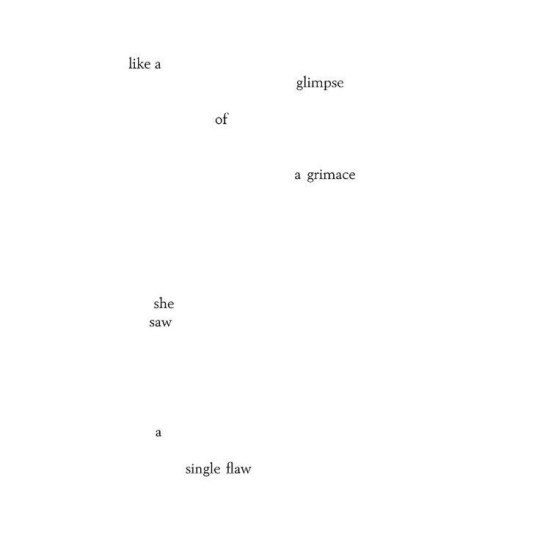
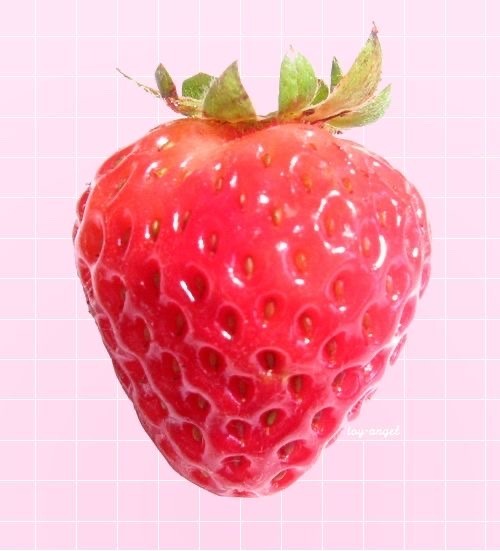
#<3#cute url#cute usernames#tumblr users#nicknames#names#messy users#twitter users#usernames#users#ideas usernames#usernames ideas#username ideas#gg users#coquette users#users aesthetic#usernames aesthetic#🎀#grunge users#edgy users#anime users#gg user#sanrio user#cute users#indie users#y2k users#ig users#gg usernames
51 notes
·
View notes
Text
me: this is a background character who's in one scene, has two lines, and is completely irrelevant to the rest of the story. i am going to stop obsessing over what to name him and use the random name generator on behindthename.com. i am going to accept the first thing it gives me and move the fuck on.
behindthename.com:

#guess i can call him charlie#i'll know what it's short for#and maybe someday i'll have a Fandom and someone will deep dive this far and find out the truth#a bitch can dream#writing#writeblr#naming characters#behind the name#names#character names#my writing#charizard cockburn#pokemon#sing-you-fools#1k#5k#10k#25k#50k
50K notes
·
View notes
Text
For the purposes of this poll please just stick to birth names! I'd like to do another poll for names people chose themselves later in life.
#names#my polls#polls#poll#tumblr polls#naming#I'm named after my great grandmother btw#my middle name is another great grandma#1k#5k#10k
14K notes
·
View notes
Text

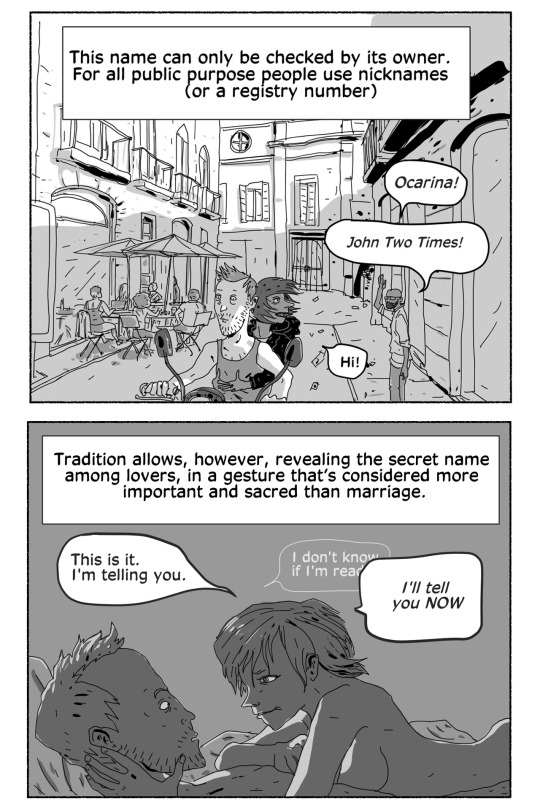
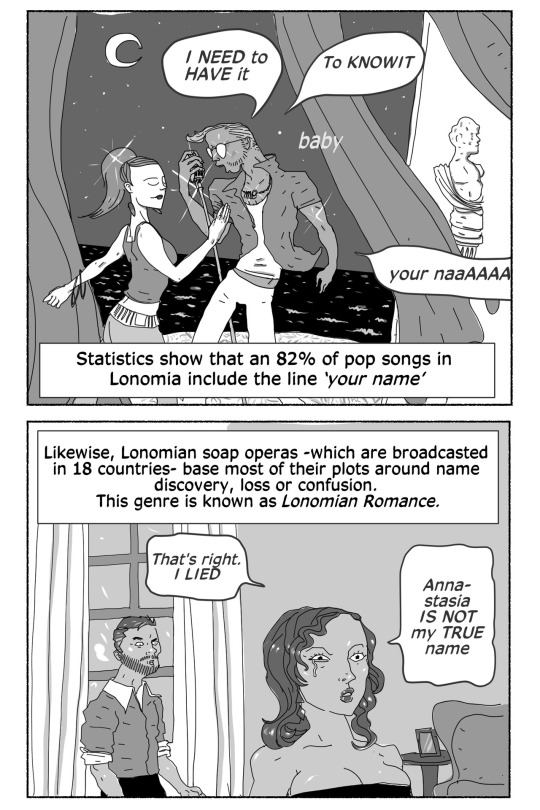
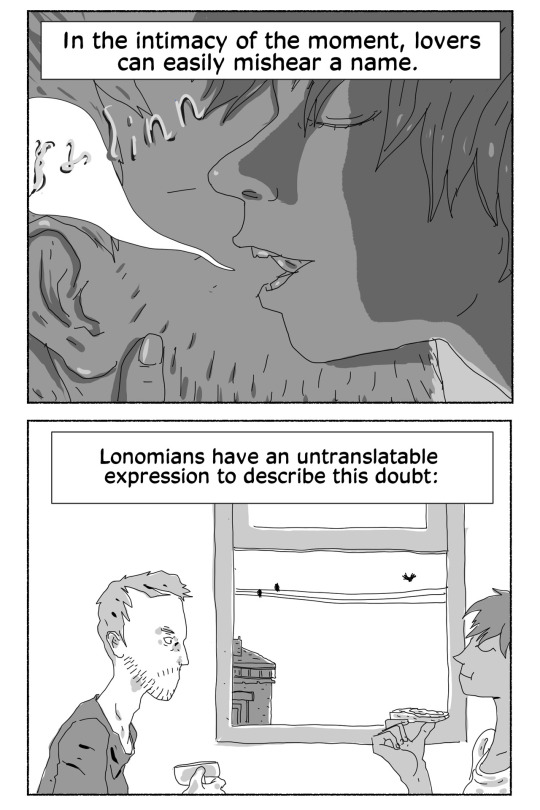
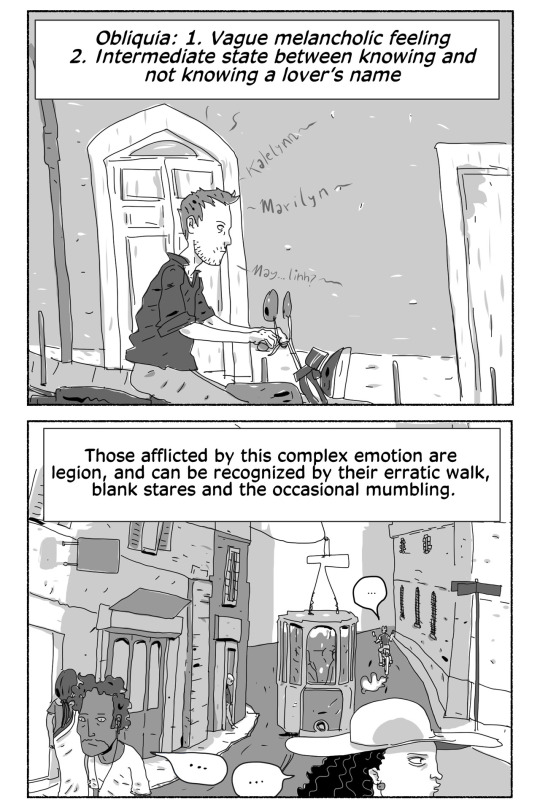

One from the archives.
37K notes
·
View notes
Text
names not numbers
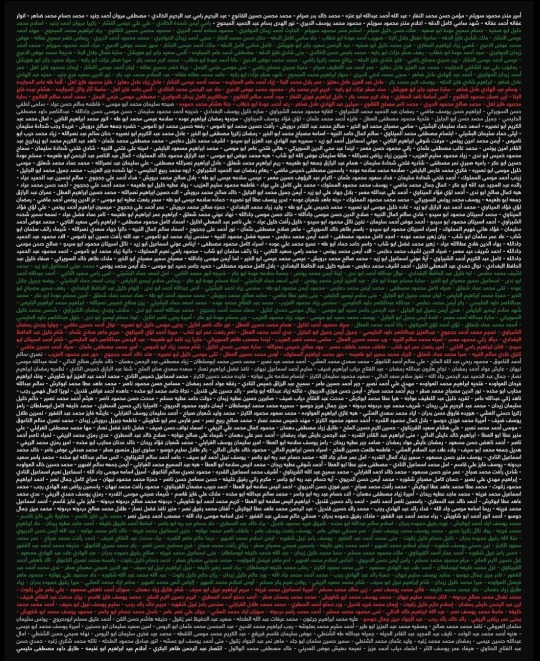
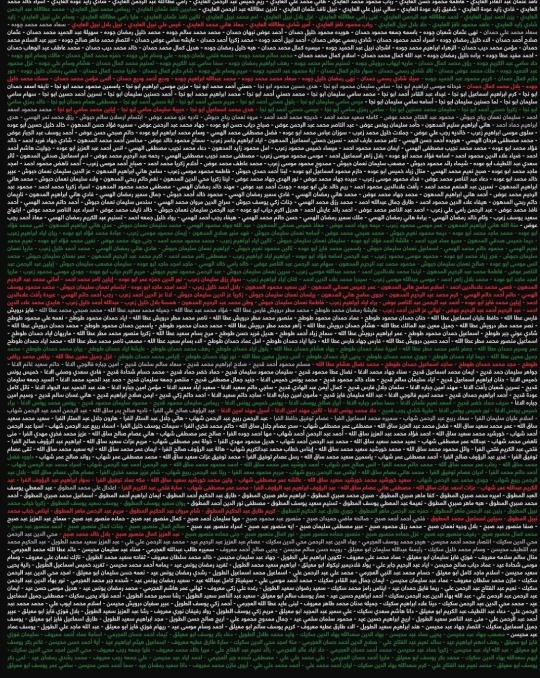
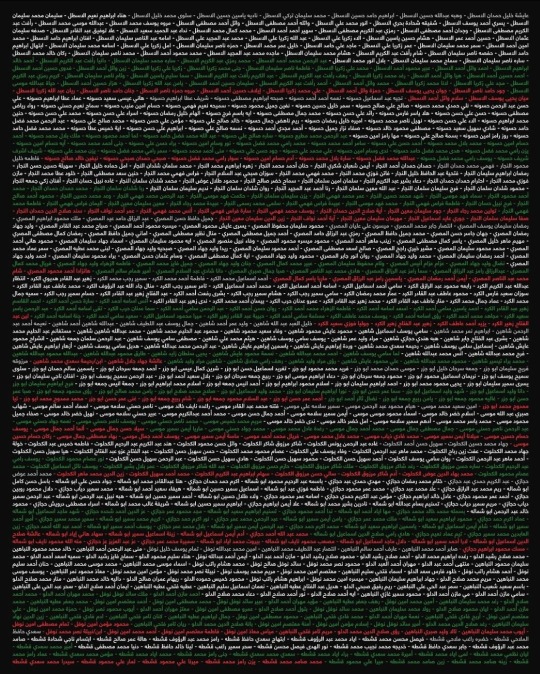
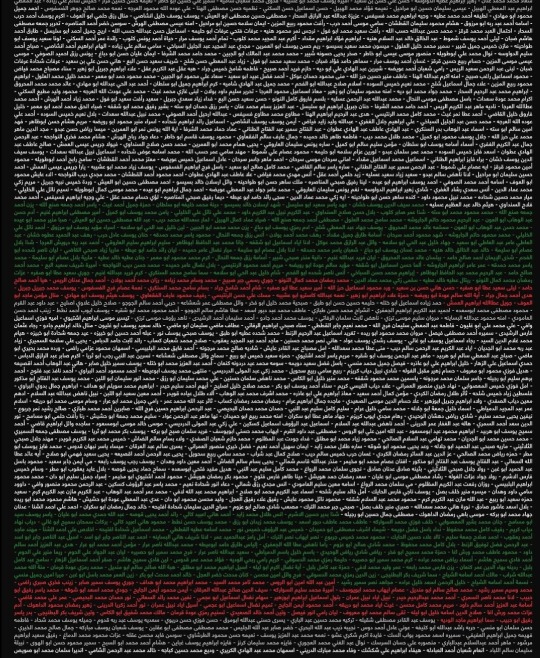
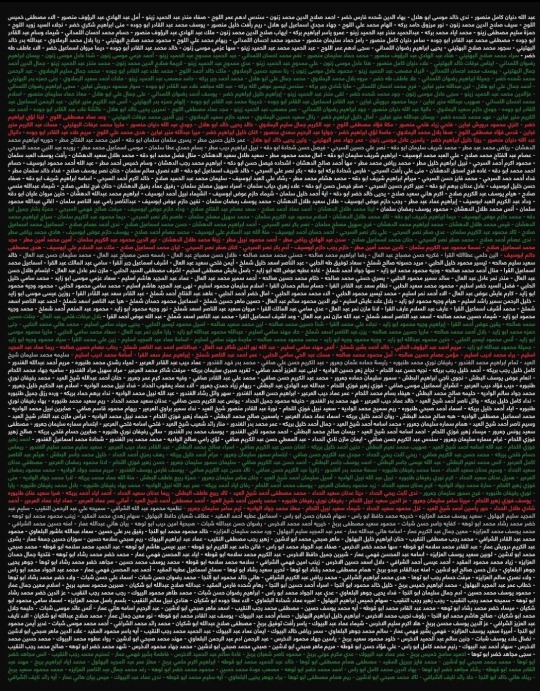
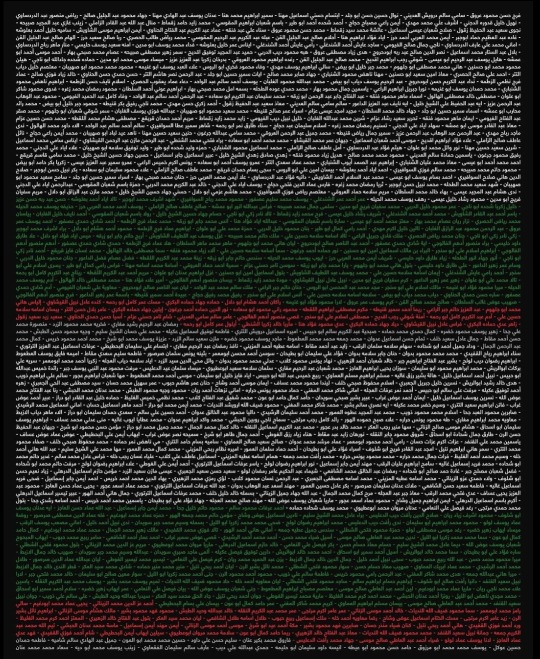
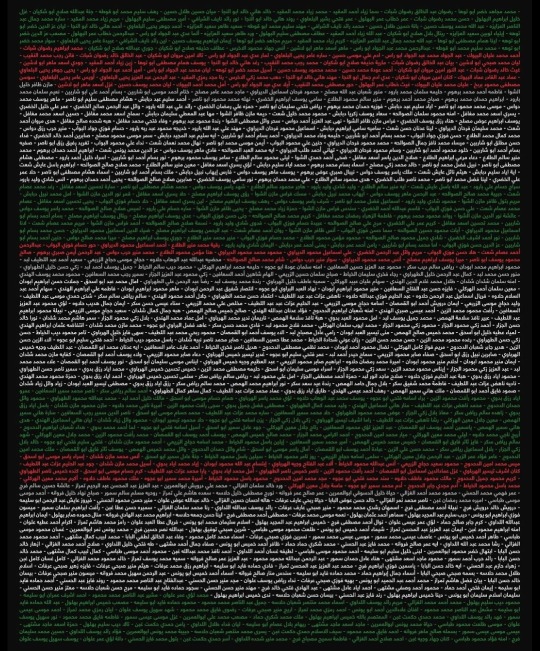
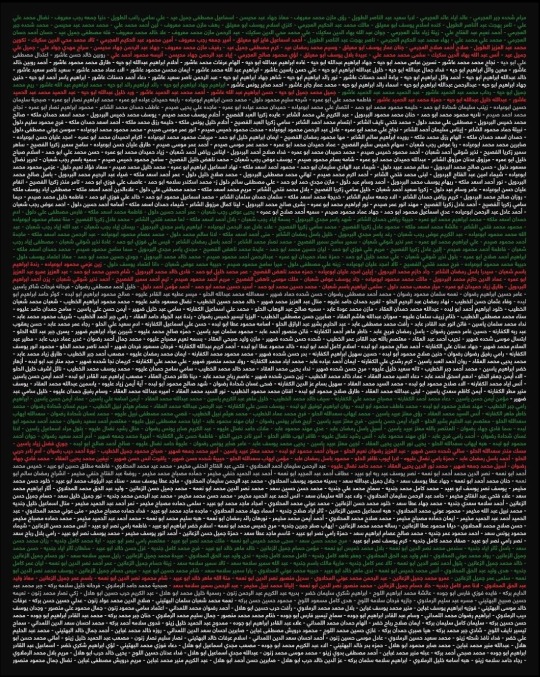
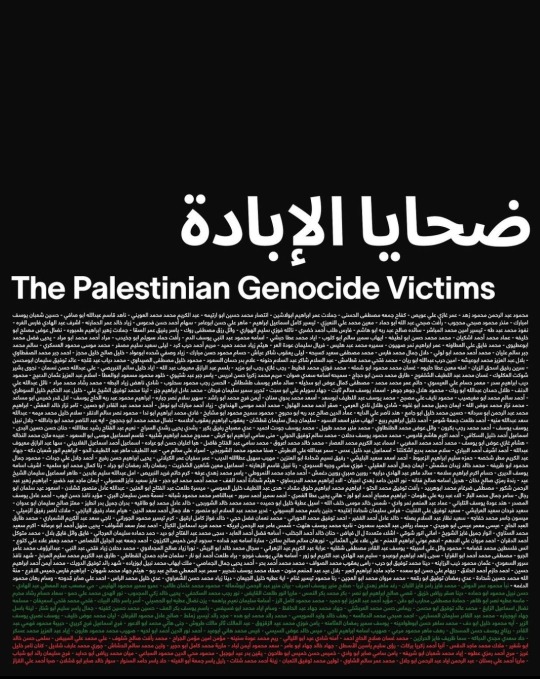
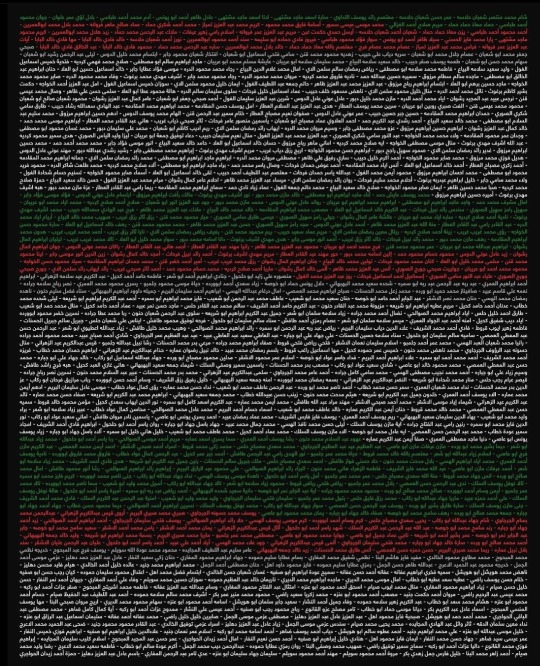
The Palestinian Ministry of Health released a report on Thursday, including the names of more than seven thousand Palestinians who were martyred in the Israeli bombing of the Gaza Strip.
Red color highlights 0-4 years old age group
Green color highlights age group 5-17
White color highlights the age group between 18 and 59 years old
Gray color highlights the age group over 60
These are not just names, but people killed in the midst of a brutal war. Remember their names.
(Designed by @georgedeebstudios on insta)
#palestine#free palestine#israel#gaza#free gaza#gaza strip#genocide#from the river to the sea palestine will be free#ethnic cleansing#gazaunderattack#design#insta#instragram#art#occupation#israel is a terrorist state#israel is an apartheid state#share#names#we are not numbers
35K notes
·
View notes
Text
A Guide to Historically Accurate Regency-Era Names

I recently received a message from a historical romance writer asking if I knew any good resources for finding historically accurate Regency-era names for their characters.
Not knowing any off the top of my head, I dug around online a bit and found there really isn’t much out there. The vast majority of search results were Buzzfeed-style listicles which range from accurate-adjacent to really, really, really bad.
I did find a few blog posts with fairly decent name lists, but noticed that even these have very little indication as to each name’s relative popularity as those statistical breakdowns really don't exist.
I began writing up a response with this information, but then I (being a research addict who was currently snowed in after a blizzard) thought hey - if there aren’t any good resources out there why not make one myself?
As I lacked any compiled data to work from, I had to do my own data wrangling on this project. Due to this fact, I limited the scope to what I thought would be the most useful for writers who focus on this era, namely - people of a marriageable age living in the wealthiest areas of London.
So with this in mind - I went through period records and compiled the names of 25,000 couples who were married in the City of Westminster (which includes Mayfair, St. James and Hyde Park) between 1804 to 1821.
So let’s see what all that data tells us…
To begin - I think it’s hard for us in the modern world with our wide and varied abundance of first names to conceive of just how POPULAR popular names of the past were.
If you were to take a modern sample of 25-year-old (born in 1998) American women, the most common name would be Emily with 1.35% of the total population. If you were to add the next four most popular names (Hannah, Samantha, Sarah and Ashley) these top five names would bring you to 5.5% of the total population. (source: Social Security Administration)
If you were to do the same survey in Regency London - the most common name would be Mary with 19.2% of the population. Add the next four most popular names (Elizabeth, Ann, Sarah and Jane) and with just 5 names you would have covered 62% of all women.
To hit 62% of the population in the modern survey it would take the top 400 names.
The top five Regency men’s names (John, William, Thomas, James and George) have nearly identical statistics as the women’s names.
I struggled for the better part of a week with how to present my findings, as a big list in alphabetical order really fails to get across the popularity factor and also isn’t the most tumblr-compatible format. And then my YouTube homepage recommended a random video of someone ranking all the books they’d read last year - and so I present…
The Regency Name Popularity Tier List
The Tiers
S+ - 10% of the population or greater. There is no modern equivalent to this level of popularity. 52% of the population had one of these 7 names.
S - 2-10%. There is still no modern equivalent to this level of popularity. Names in this percentage range in the past have included Mary and William in the 1880s and Jennifer in the late 1970s (topped out at 4%).
A - 1-2%. The top five modern names usually fall in this range. Kids with these names would probably include their last initial in class to avoid confusion. (1998 examples: Emily, Sarah, Ashley, Michael, Christopher, Brandon.)
B - .3-1%. Very common names. Would fall in the top 50 modern names. You would most likely know at least 1 person with these names. (1998 examples: Jessica, Megan, Allison, Justin, Ryan, Eric)
C - .17-.3%. Common names. Would fall in the modern top 100. You would probably know someone with these names, or at least know of them. (1998 examples: Chloe, Grace, Vanessa, Sean, Spencer, Seth)
D - .06-.17%. Less common names. In the modern top 250. You may not personally know someone with these names, but you’re aware of them. (1998 examples: Faith, Cassidy, Summer, Griffin, Dustin, Colby)
E - .02-.06%. Uncommon names. You’re aware these are names, but they are not common. Unusual enough they may be remarked upon. (1998 examples: Calista, Skye, Precious, Fabian, Justice, Lorenzo)
F - .01-.02%. Rare names. You may have heard of these names, but you probably don’t know anyone with one. Extremely unusual, and would likely be remarked upon. (1998 examples: Emerald, Lourdes, Serenity, Dario, Tavian, Adonis)
G - Very rare names. There are only a handful of people with these names in the entire country. You’ve never met anyone with this name.
H - Virtually non-existent. Names that theoretically could have existed in the Regency period (their original source pre-dates the early 19th century) but I found fewer than five (and often no) period examples of them being used in Regency England. (Example names taken from romance novels and online Regency name lists.)
Just to once again reinforce how POPULAR popular names were before we get to the tier lists - statistically, in a ballroom of 100 people in Regency London: 80 would have names from tiers S+/S. An additional 15 people would have names from tiers A/B and C. 4 of the remaining 5 would have names from D/E. Only one would have a name from below tier E.
Women's Names
S+ Mary, Elizabeth, Ann, Sarah
S - Jane, Mary Ann+, Hannah, Susannah, Margaret, Catherine, Martha, Charlotte, Maria
A - Frances, Harriet, Sophia, Eleanor, Rebecca
B - Alice, Amelia, Bridget~, Caroline, Eliza, Esther, Isabella, Louisa, Lucy, Lydia, Phoebe, Rachel, Susan
C - Ellen, Fanny*, Grace, Henrietta, Hester, Jemima, Matilda, Priscilla
D - Abigail, Agnes, Amy, Augusta, Barbara, Betsy*, Betty*, Cecilia, Christiana, Clarissa, Deborah, Diana, Dinah, Dorothy, Emily, Emma, Georgiana, Helen, Janet^, Joanna, Johanna, Judith, Julia, Kezia, Kitty*, Letitia, Nancy*, Ruth, Winifred>
E - Arabella, Celia, Charity, Clara, Cordelia, Dorcas, Eve, Georgina, Honor, Honora, Jennet^, Jessie*^, Joan, Joyce, Juliana, Juliet, Lavinia, Leah, Margery, Marian, Marianne, Marie, Mercy, Miriam, Naomi, Patience, Penelope, Philadelphia, Phillis, Prudence, Rhoda, Rosanna, Rose, Rosetta, Rosina, Sabina, Selina, Sylvia, Theodosia, Theresa
F - (selected) Alicia, Bethia, Euphemia, Frederica, Helena, Leonora, Mariana, Millicent, Mirah, Olivia, Philippa, Rosamund, Sybella, Tabitha, Temperance, Theophila, Thomasin, Tryphena, Ursula, Virtue, Wilhelmina
G - (selected) Adelaide, Alethia, Angelina, Cassandra, Cherry, Constance, Delilah, Dorinda, Drusilla, Eva, Happy, Jessica, Josephine, Laura, Minerva, Octavia, Parthenia, Theodora, Violet, Zipporah
H - Alberta, Alexandra, Amber, Ashley, Calliope, Calpurnia, Chloe, Cressida, Cynthia, Daisy, Daphne, Elaine, Eloise, Estella, Lilian, Lilias, Francesca, Gabriella, Genevieve, Gwendoline, Hermione, Hyacinth, Inez, Iris, Kathleen, Madeline, Maude, Melody, Portia, Seabright, Seraphina, Sienna, Verity
Men's Names
S+ John, William, Thomas
S - James, George, Joseph, Richard, Robert, Charles, Henry, Edward, Samuel
A - Benjamin, (Mother’s/Grandmother’s maiden name used as first name)#
B - Alexander^, Andrew, Daniel, David>, Edmund, Francis, Frederick, Isaac, Matthew, Michael, Patrick~, Peter, Philip, Stephen, Timothy
C - Abraham, Anthony, Christopher, Hugh>, Jeremiah, Jonathan, Nathaniel, Walter
D - Adam, Arthur, Bartholomew, Cornelius, Dennis, Evan>, Jacob, Job, Josiah, Joshua, Lawrence, Lewis, Luke, Mark, Martin, Moses, Nicholas, Owen>, Paul, Ralph, Simon
E - Aaron, Alfred, Allen, Ambrose, Amos, Archibald, Augustin, Augustus, Barnard, Barney, Bernard, Bryan, Caleb, Christian, Clement, Colin, Duncan^, Ebenezer, Edwin, Emanuel, Felix, Gabriel, Gerard, Gilbert, Giles, Griffith, Harry*, Herbert, Humphrey, Israel, Jabez, Jesse, Joel, Jonas, Lancelot, Matthias, Maurice, Miles, Oliver, Rees, Reuben, Roger, Rowland, Solomon, Theophilus, Valentine, Zachariah
F - (selected) Abel, Barnabus, Benedict, Connor, Elijah, Ernest, Gideon, Godfrey, Gregory, Hector, Horace, Horatio, Isaiah, Jasper, Levi, Marmaduke, Noah, Percival, Shadrach, Vincent
G - (selected) Albion, Darius, Christmas, Cleophas, Enoch, Ethelbert, Gavin, Griffin, Hercules, Hugo, Innocent, Justin, Maximilian, Methuselah, Peregrine, Phineas, Roland, Sebastian, Sylvester, Theodore, Titus, Zephaniah
H - Albinus, Americus, Cassian, Dominic, Eric, Milo, Rollo, Trevor, Tristan, Waldo, Xavier
# Men were sometimes given a family surname (most often their mother's or grandmother's maiden name) as their first name - the most famous example of this being Fitzwilliam Darcy. If you were to combine all surname-based first names as a single 'name' this is where the practice would rank.
*Rank as a given name, not a nickname
+If you count Mary Ann as a separate name from Mary - Mary would remain in S+ even without the Mary Anns included
~Primarily used by people of Irish descent
^Primarily used by people of Scottish descent
>Primarily used by people of Welsh descent
I was going to continue on and write about why Regency-era first names were so uniform, discuss historically accurate surnames, nicknames, and include a little guide to finding 'unique' names that are still historically accurate - but this post is already very, very long, so that will have to wait for a later date.
If anyone has any questions/comments/clarifications in the meantime feel free to message me.
Methodology notes: All data is from marriage records covering six parishes in the City of Westminster between 1804 and 1821. The total sample size was 50,950 individuals.
I chose marriage records rather than births/baptisms as I wanted to focus on individuals who were adults during the Regency era rather than newborns. I think many people make the mistake when researching historical names by using baby name data for the year their story takes place rather than 20 to 30 years prior, and I wanted to avoid that. If you are writing a story that takes place in 1930 you don’t want to research the top names for 1930, you need to be looking at 1910 or earlier if you are naming adult characters.
I combined (for my own sanity) names that are pronounced identically but have minor spelling differences: i.e. the data for Catherine also includes Catharines and Katherines, Susannah includes Susannas, Phoebe includes Phebes, etc.
The compound 'Mother's/Grandmother's maiden name used as first name' designation is an educated guesstimate based on what I recognized as known surnames, as I do not hate myself enough to go through 25,000+ individuals and confirm their mother's maiden names. So if the tally includes any individuals who just happened to be named Fitzroy/Hastings/Townsend/etc. because their parents liked the sound of it and not due to any familial relations - my bad.
I did a small comparative survey of 5,000 individuals in several rural communities in Rutland and Staffordshire (chosen because they had the cleanest data I could find and I was lazy) to see if there were any significant differences between urban and rural naming practices and found the results to be very similar. The most noticeable difference I observed was that the S+ tier names were even MORE popular in rural areas than in London. In Rutland between 1810 and 1820 Elizabeths comprised 21.4% of all brides vs. 15.3% in the London survey. All other S+ names also saw increases of between 1% and 6%. I also observed that the rural communities I surveyed saw a small, but noticeable and fairly consistent, increase in the use of names with Biblical origins.
Sources of the records I used for my survey:
Ancestry.com. England & Wales Marriages, 1538-1988 [database on-line].
Ancestry.com. Westminster, London, England, Church of England Marriages and Banns, 1754-1935 [database on-line].
#history#regency#1800s#1810s#names#london#writing resources#regency romance#jane austen#bridgerton#bridgerton would be an exponentially better show if daphne's name was dorcas#behold - the reason i haven't posted in three weeks
9K notes
·
View notes
Text
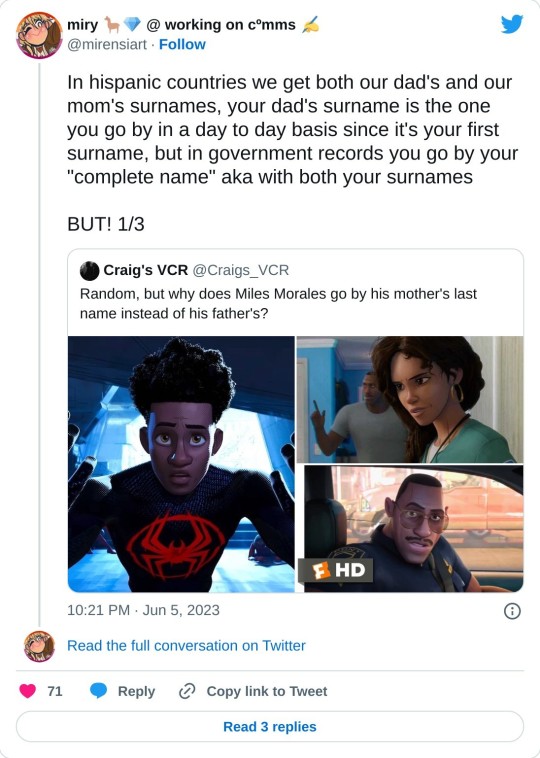

#names#spiderman#learn something new every day#food for thought#cultures#americomi#hispanic#miles morales#gumoguy
34K notes
·
View notes
Text
24K notes
·
View notes
Text
Some people name their child after themselves, and some people say they think of their pets as their children, but rarely do you see a pet owner name their pet after themself. "Hi, I'm Dave, and this is my dog, Dave" -- you just don't see that a lot.
37K notes
·
View notes
Text

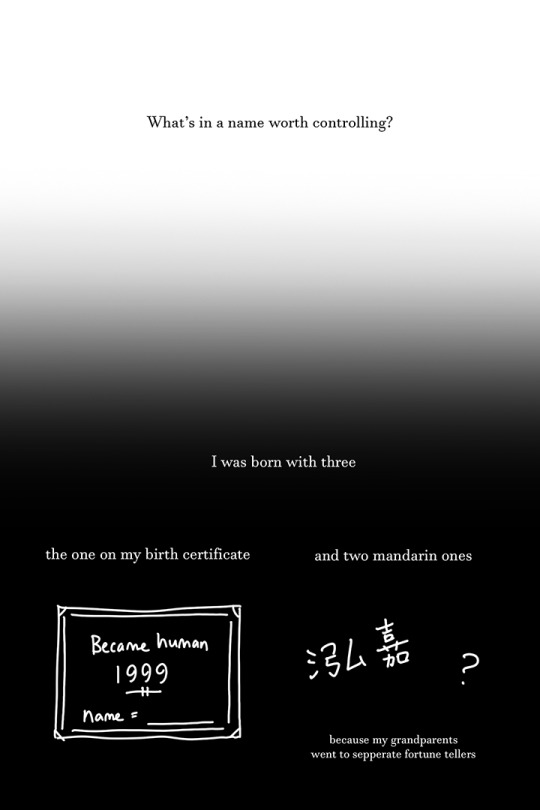
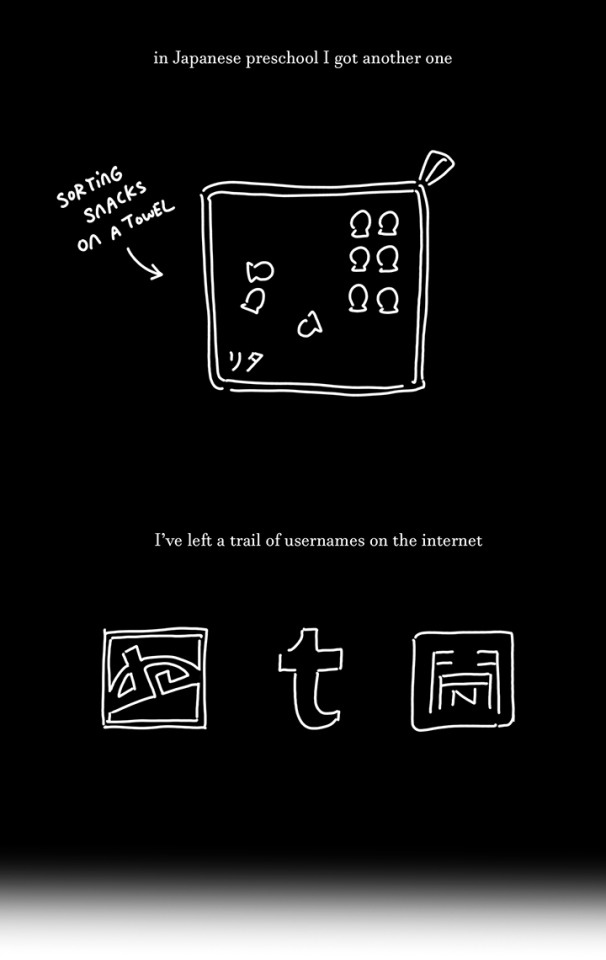
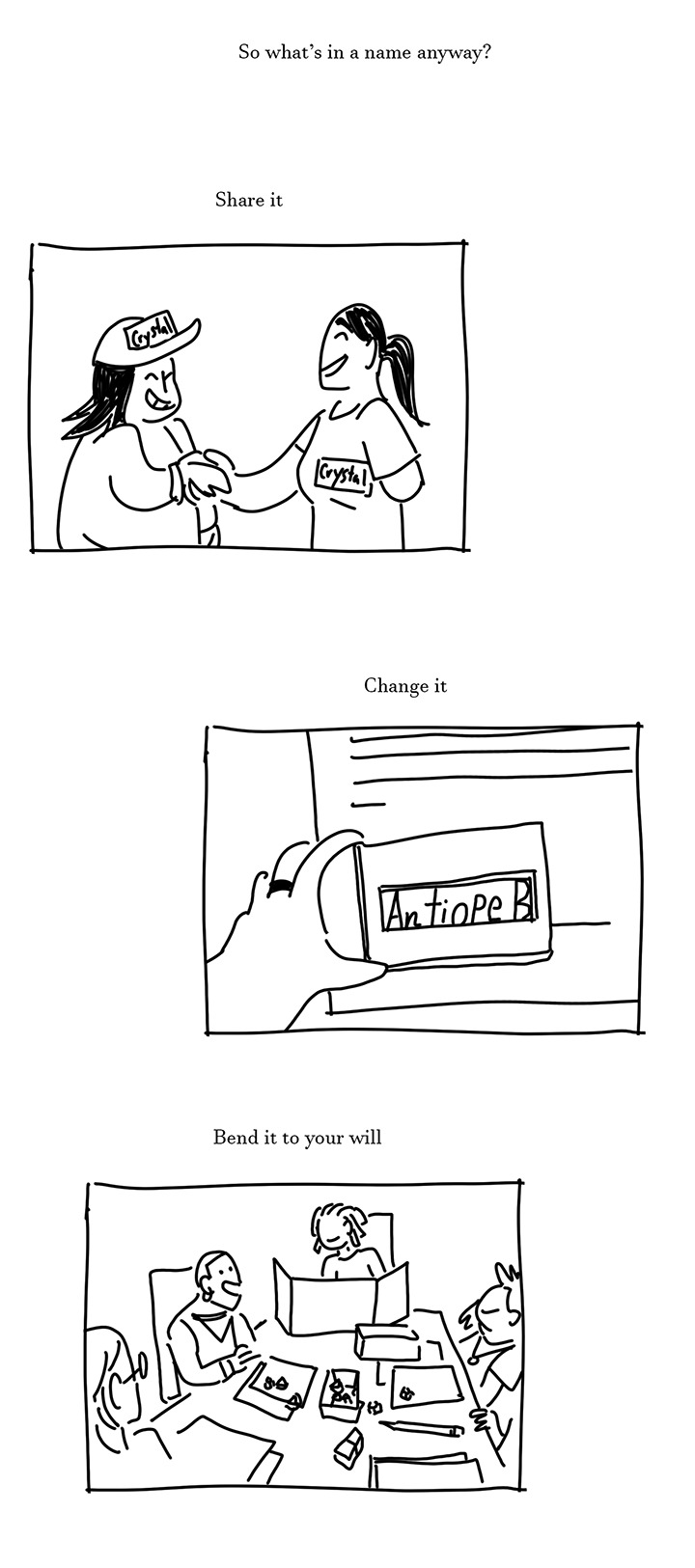
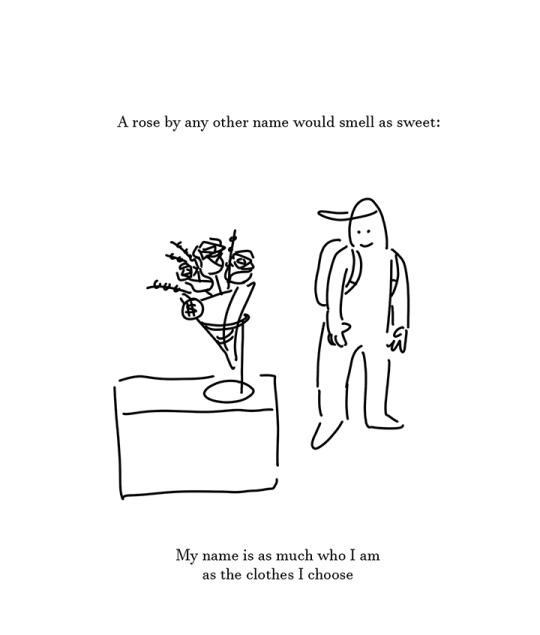
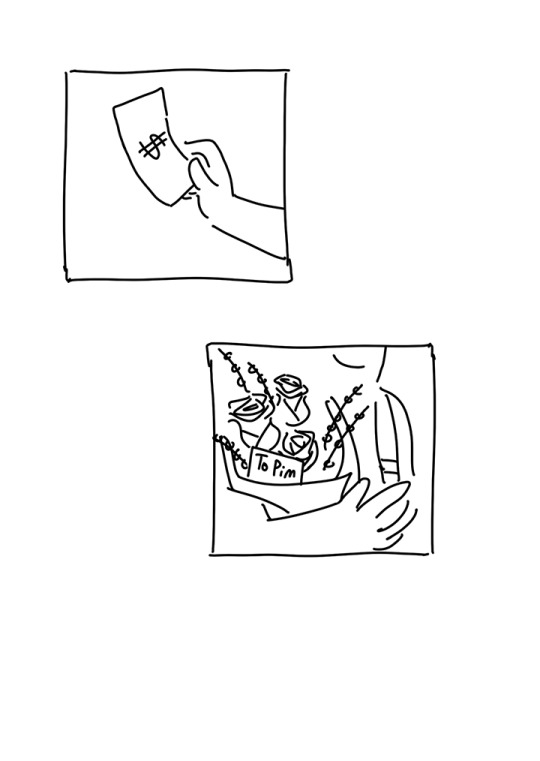

a comic about my name
this is just the way I look at it to feel empowered/at peace with how I'm called different names by different people
obviously it's not the same for everyone but looking at it like this is just what made me happy
11K notes
·
View notes
Text
We ask your questions so you don’t have to! Submit your questions to have them posted anonymously as polls.
#polls#incognito polls#anonymous#tumblr polls#tumblr users#questions#names#nicknames#polls about people#submitted nov 3
6K notes
·
View notes
Text
Reblog to help find out how many of us share in the Struggle.
Feel free to elaborate on your name situation in the notes, should you care to do so!
(Companion poll about surnames coming soon.)
15K notes
·
View notes
Text
Naming International POC Characters: Do Your Research.
This post is part of a double feature for the same ask. First check out Mod Colette's answer to OP's original question at: A Careful Balance: Portraying a Black Character's Relationship with their Hair. Below are notes on character naming from Mod Rina.
~ ~ ~
@writingraccoon said:
My character is black in a dungeons and dragons-like fantasy world. His name is Kazuki Haile (pronounced hay-lee), and his mother is this world's equivalent of Japanese, which is where his first name is from, while his father is this world's equivalent of Ethiopian, which is where his last name is from. He looks much more like his father, and has hair type 4a. [...]
Hold on a sec.
Haile (pronounced hay-lee), [...] [H]is father is this world’s equivalent of Ethiopian, which is where his last name is from.
OP, where did you get this name? Behindthename.com, perhaps?

Note how it says, “Submitted names are contributed by users of this website. Check marks indicate the level to which a name has been verified.” Do you see any check marks, OP?
What language is this, by the way? If we only count official languages, Ethiopia has 5: Afar, Amharic, Oromo, Somali, & Tigrinya. If we count everything native to that region? Over 90 languages. And I haven't even mentioned the dormant/extinct ones. Do you know which language this name comes from? Have you determined Kazuki’s father’s ethnic group, religion, and language(s)? Do you know just how ethnically diverse Ethiopia is?
~ ~ ~
To All Looking for Character Names on the Internet:
Skip the name aggregators and baby name lists. They often do not cite their sources, even if they’re pulling from credible ones, and often copy each other.
If you still wish to use a name website, find a second source that isn’t a name website.
Find at least one real life individual, living or dead, who has this given name or surname. Try Wikipedia’s lists of notable individuals under "List of [ethnicity] people." You can even try searching Facebook! Pay attention to when these people were born for chronological accuracy/believability.
Make sure you know the language the name comes from, and the ethnicity/culture/religion it’s associated with.
Make sure you understand the naming practices of that culture—how many names, where they come from, name order, and other conventions.
Make sure you have the correct pronunciation of the name. Don’t always trust Wikipedia or American pronunciation guides on Youtube. Try to find a native speaker or language lesson source, or review the phonology & orthography and parse out the string one phoneme at a time.
Suggestions for web sources:
Wikipedia! Look for: “List of [language] [masculine/feminine] given names,” “List of most common [language] family names,” “List of most common surnames in [continent],” and "List of [ethnicity] people."
Census data! Harder to find due to language barriers & what governments make public, but these can really nail period accuracy. This may sound obvious, but look at the year of the character's birth, not the year your story takes place.
Forums and Reddit. No really. Multicultural couples and expats will often ask around for what to name their children. There’s also r/namenerds, where so many folks have shared names in their language that they now have “International Name Threads.” These are all great first-hand sources for name connotations—what’s trendy vs. old-fashioned, preppy vs. nerdy, or classic vs. overused vs. obscure.
~ ~ ~
Luckily for OP, I got very curious and did some research. More on Ethiopian & Eritrean naming, plus mixed/intercultural naming and my recommendations for this character, under the cut. It's really interesting, I promise!
Ethiopian and Eritrean Naming Practices
Haile (IPA: /həjlə/ roughly “hy-luh.” Both a & e are /ə/, a central “uh” sound) is a phrase meaning “power of” in Ge’ez, sometimes known as Classical Ethiopic, which is an extinct/dormant Semitic language that is now used as a liturgical language in Ethiopian churches (think of how Latin & Sanskrit are used today). So it's a religious name, and was likely popularized by the regnal name of the last emperor of Ethiopia, Haile Selassie (“Power of the Trinity”). Ironically, for these reasons it is about as nationalistically “Ethiopian” as a name can get.
Haile is one of the most common “surnames” ever in Ethiopia and Eritrea. Why was that in quotes? Because Ethiopians and Eritreans don’t have surnames. Historically, when they needed to distinguish themselves from others with the same given name, they affixed their father’s given name, and then sometimes their grandfather’s. In modern Ethiopia and Eritrea, their given name is followed by a parent’s (usually father’s) name. First-generation diaspora abroad may solidify this name into a legal “surname” which is then consistently passed down to subsequent generations.
Intercultural Marriages and Naming
This means that Kazuki’s parents will have to figure out if there will be a “surname” going forward, and who it applies to. Your easiest and most likely option is that Kazuki’s dad would have chosen to make his second name (Kazuki’s grandpa’s name) the legal “surname.” The mom would have taken this name upon marriage, and Kazuki would inherit it also. Either moving abroad or the circumstances of the intercultural marriage would have motivated this. Thus “Haile” would be grandpa’s name, and Kazuki wouldn’t be taking his “surname” from his dad. This prevents the mom & Kazuki from having different “surnames.” But you will have to understand and explain where the names came from and the decisions dad made to get there. Otherwise, this will ring culturally hollow and indicate a lack of research.
Typically intercultural parents try to
come up with a first name that is pronounceable in both languages,
go with a name that is the dominant language of where they live, or
compromise and pick one parent’s language, depending on the circumstances.
Option 1 and possibly 3 requires figuring out which language is the father’s first language. Unfortunately, because of the aforementioned national ubiquity of Haile, you will have to start from scratch here and figure out his ethnic group, religion (most are Ethiopian Orthodox and some Sunni Muslim), and language(s).
But then again, writing these characters knowledgeably and respectfully also requires figuring out that information anyway.
~ ~ ~
Names and naming practices are so, so diverse. Do research into the culture and language before picking a name, and never go with only one source.
~ Mod Rina
#asks#language#languages#linguistics#east africa#african#immigration#ethiopian#names#naming#research#resources#writeblr#character names#character name ideas#rina says read under the cut. read it
3K notes
·
View notes
Text
I think I grew too much on the internet to understand how some people have blog names.
Like, I'm from IRC and trans communities, if your username is bball24, that's your name. I assume your mom addresses you by that name and it reads the same on your driver's license and maybe even birth certificate l.
I never think "oh, best-tardis-in-the-galaxy is a blog run by some gal named Sarah!". No, if I think of the name at all, it's like obscure trivia. My good friend Ms. Best-tardis-in-the-galaxy has the government name 'sarah'. Perhaps she hasn't been able to change it yet, too much paperwork or something?
I just sometimes see people post things like "what's your blog name mean?" and I'm like "it's me. What else would it be? You mean kirk's-big-saggy-tits isn't your name?"
Basically it's something like Facebook's real name policy but from the other angle. I think everyone is named what their username is, not vice versa.
(and yes, my name is foone. My mom calls me that and it's what's on my license. Isn't that true for everyone?)
6K notes
·
View notes
Text
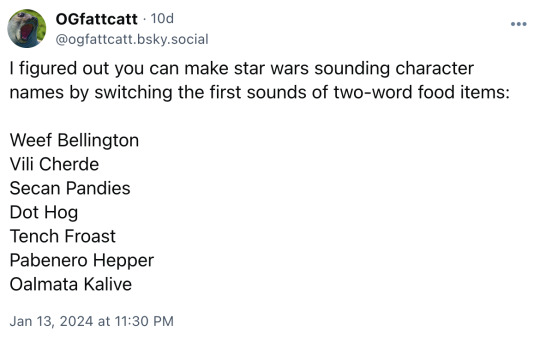
This is genius. Off to search the kitchen for new character names.
#naming characters#writer life#star wars#names#wanna write about a goblin named Pabanero Hepper#one of those goblins colored like poisonous tree frogs#it'd be great
3K notes
·
View notes
Photo
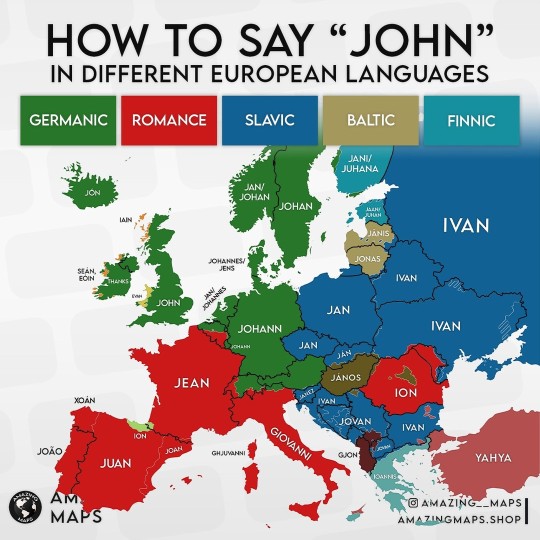
How to say John in European languages.
by amazing__maps
2K notes
·
View notes